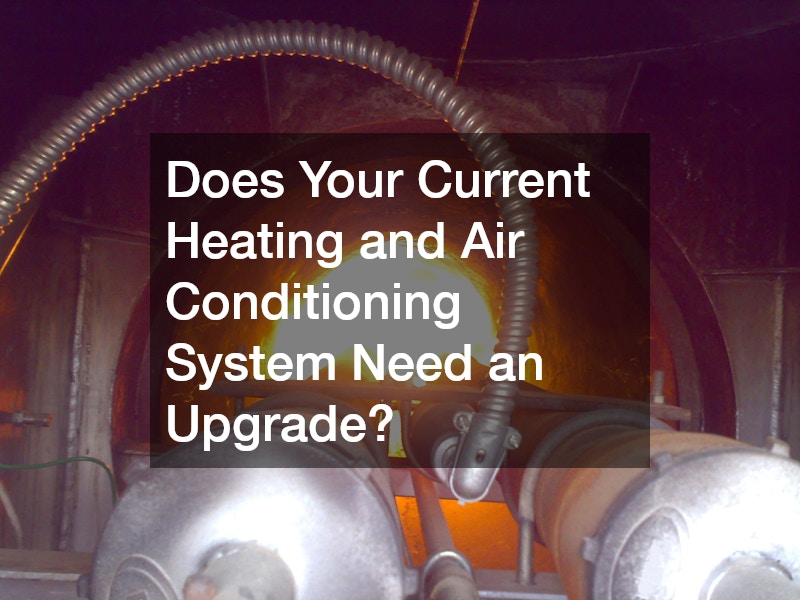
Does Your Current Heating and Air Conditioning System Need an Upgrade?
Your heating and air conditioning system plays a crucial role in maintaining a comfortable, safe, and energy-efficient home. Over time, even the most reliable systems start to lose their efficiency and effectiveness. Whether you’re dealing with rising energy bills, inconsistent indoor temperatures, or an aging unit, upgrading your system could provide substantial benefits. Working with a reputable HVAC company can make the transition smoother and more cost-effective. This article explores how to evaluate your current system, understand your upgrade options, and make informed decisions that enhance comfort and energy savings.
How do I know if my current heating and air system is outdated?
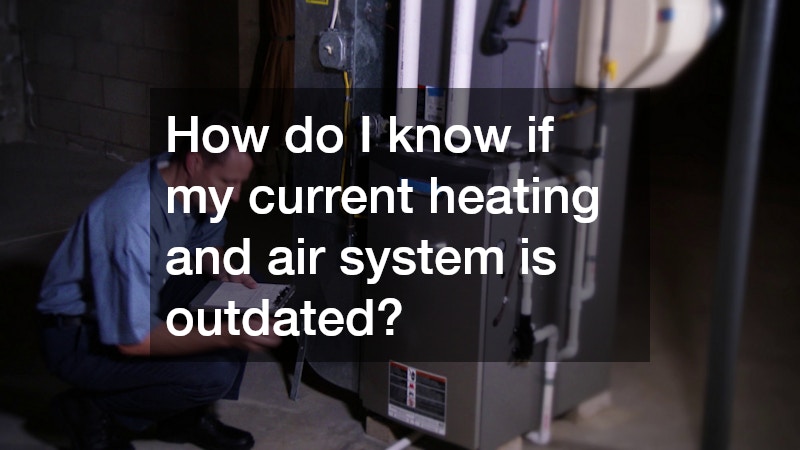
Signs of Wear and Tear
Visible wear and tear is often the first clue. If you notice loud noises during operation, uneven heating or cooling, or constant cycling on and off, your system may be nearing the end of its lifespan. These issues often lead homeowners to reach out to an HVAC company or plumbing company to diagnose the problem, only to discover that repairs may not be enough.
Age of the System
The age of your heating and cooling system is a strong indicator of its potential inefficiency. Systems older than 10 to 15 years are usually outdated compared to today’s standards. Older units lack modern energy-saving technologies and might also be incompatible with upgrades such as smart thermostats or tankless water heater installation.
Frequent Repairs Needed
Repeated breakdowns and the need for frequent repairs can be frustrating and costly. If you find yourself calling for service multiple times a year, it might be time to look into ac replacement services or heat pump installations, depending on your specific home needs.
Inefficient Energy Use
Older systems generally consume more energy, especially if they haven’t been properly maintained. An inefficient system increases utility bills and contributes to unnecessary environmental impact. Scheduling preventative maintenance can temporarily mitigate these issues, but at some point, a system upgrade becomes the most cost-effective solution.
Comparison with Modern Systems
Modern HVAC systems are more efficient, quieter, and smarter. Many newer models include advanced features like zone control, variable speed motors, and improved filtration systems. A comparison between your current system and what’s available on the market today will highlight the limitations of your older unit and the advantages of upgrading.
What are the benefits of upgrading my heating and air system?
Improved Energy Efficiency
One of the most compelling reasons to invest in a new HVAC system is the significant improvement in energy efficiency. New systems use less energy to produce the same or better levels of comfort. This is especially true when replacing outdated systems with newer, ENERGY STAR® certified units or integrating options like a tankless water heater, which consumes less energy than traditional water heaters.
Enhanced Comfort Levels
Upgraded systems provide better airflow, more accurate temperature control, and superior humidity regulation. This results in a more comfortable living environment year-round. Whether it’s heating in the winter or cooling in the summer, a new system is likely to outperform your old one by a wide margin.
Advanced Features and Technology
Today’s HVAC systems come equipped with cutting-edge features such as smart thermostats, automated zoning, and even compatibility with home automation platforms. These technologies can help you fine-tune your indoor climate with ease. When working with a reliable HVAC company, these features can be tailored to fit your lifestyle and specific home needs.
Potential Cost Savings
While the initial investment in a new system can be substantial, long-term savings often make up for it. Lower energy bills, reduced repair costs, and potential tax credits or rebates can offset the upfront cost. Additionally, newer systems typically work in sync with other home systems, such as electrical services and plumbing, enhancing overall household efficiency.
Environmental Benefits
Modern HVAC systems are built with environmental impact in mind. By using less electricity and emitting fewer greenhouse gases, these systems contribute to a more sustainable home. For environmentally conscious homeowners, this can be a major factor in deciding to upgrade.
How often should heating and air systems be replaced?
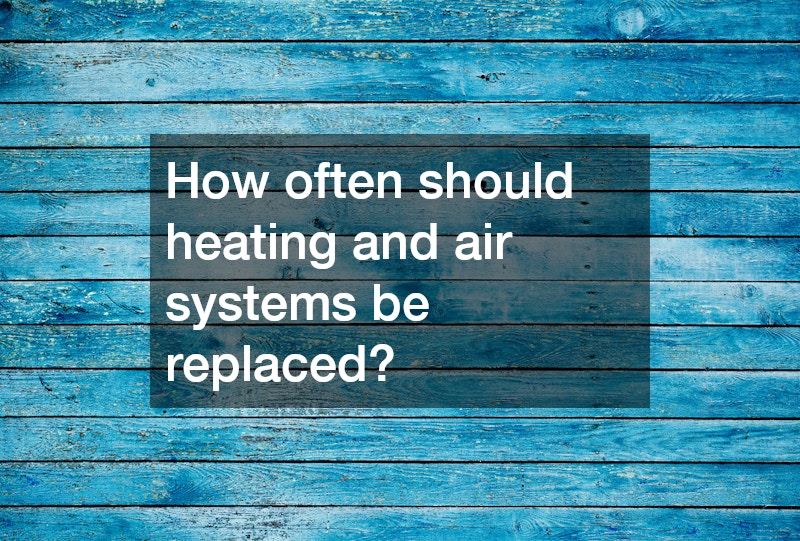
Average Lifespan of Units
Furnaces typically last around 15 to 20 years, and air conditioning units have a lifespan of about 10 to 15 years. Water heaters and similar appliances also follow these general timelines, with tankless water heaters often lasting longer if properly maintained.
Factors Affecting Longevity
Factors like local climate, frequency of use, and how well the system was maintained all influence how long your HVAC system will last. Systems that have been neglected or used heavily will degrade faster than those that have had regular preventative maintenance.
Manufacturer Recommendations
Most manufacturers provide guidelines for when a unit should be replaced, and many recommend upgrading after 10 to 15 years. These recommendations are based on efficiency ratings, wear on parts, and advancements in technology.
Signs It’s Time for Replacement
A combination of age, frequent repairs, inconsistent performance, and rising energy costs are all clear signs that a replacement is due. If your current system is affecting your comfort or wallet, it’s time to consult an HVAC company to evaluate your options.
Regular Maintenance Impacts
Routine preventative maintenance from qualified HVAC professionals can significantly extend the life of your system. This includes inspections, cleaning, and minor repairs that prevent larger issues from developing.
What types of heating and air systems are available?
Central Heating and Cooling
Central systems are common and ideal for larger homes. They use ductwork to distribute air throughout the house and are generally powerful and effective when properly sized and maintained.
Ductless Mini-Split Systems
These systems are great for homes without ductwork or for adding climate control to specific areas. Mini-splits are efficient and easy to install, offering flexibility in how and where they’re used.
Heat Pumps
Heat pump installations are becoming increasingly popular due to their ability to both heat and cool a home. They are highly efficient, especially in moderate climates, and offer year-round comfort with lower energy consumption.
Geothermal Systems
Though more expensive upfront, geothermal systems use underground heat for extremely efficient operation. These are excellent for environmentally-conscious homeowners and can provide decades of reliable service.
Hybrid Systems
Hybrid systems combine a traditional furnace with a heat pump, automatically switching between the two for optimal efficiency. This versatility makes them a practical choice in areas with varying seasonal temperatures.
How do I determine the right size for my heating and air system?
Importance of Proper Sizing
An HVAC system that is too large or too small can lead to numerous problems, including poor comfort levels and increased energy consumption. Proper sizing is crucial to ensure efficient and effective operation.
Measuring Your Home’s Heating and Cooling Load
Load calculations involve assessing your home’s size, insulation, windows, and other factors. This step is critical for selecting a system that meets your exact needs and avoids over- or underperformance.
Consulting with Professionals
Only qualified HVAC professionals can perform accurate load calculations and recommend the best system. Partnering with a trusted HVAC company ensures that you make informed decisions backed by technical expertise.
Consequences of Oversizing
Oversized systems tend to short-cycle, which leads to increased wear and tear and reduced efficiency. They also fail to properly dehumidify the air, resulting in a less comfortable environment.
Consequences of Undersizing
Undersized systems struggle to maintain desired temperatures, leading to longer run times and higher energy bills. They also experience more stress and wear, shortening their overall lifespan.
What costs can I expect when upgrading my system?
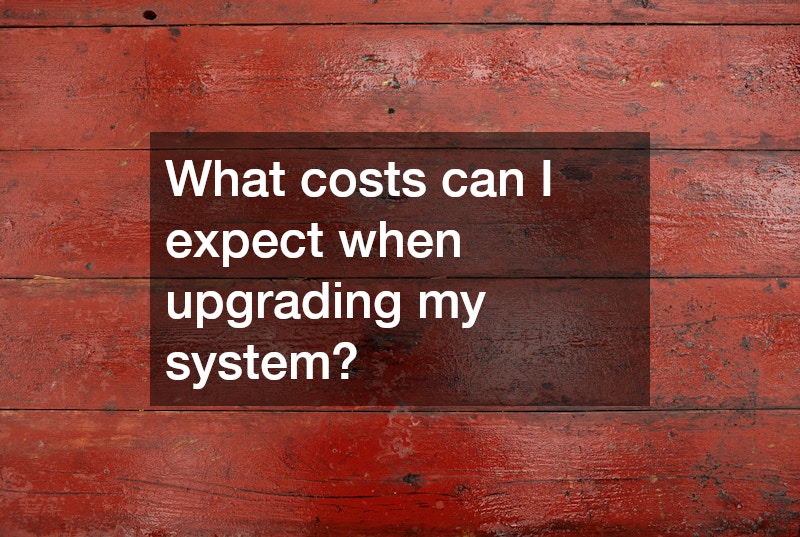
Initial Purchase Costs
The cost of a new HVAC system varies widely based on type, size, and features. Systems with advanced technology or higher efficiency ratings will typically cost more upfront but can lead to greater savings over time.
Installation Costs
Installation expenses can include labor, materials, and possible upgrades to existing ductwork or electrical services. Using experienced technicians from a reliable HVAC company ensures the job is done right the first time.
Operational Cost Differences
Newer systems are far more energy-efficient than their older counterparts. This results in lower monthly utility bills and fewer maintenance issues over time. For example, replacing an old water heater with a new tankless model often leads to reduced energy usage and more consistent hot water delivery.
Maintenance Costs
Modern systems are generally easier to maintain and experience fewer breakdowns. Still, ongoing preventative maintenance is necessary to keep everything running smoothly. Costs for services like tune-ups and inspections are relatively low compared to the potential cost of major repairs.
Financing and Incentive Options
Many HVAC companies offer financing plans, and various federal or state programs provide rebates for energy-efficient upgrades. Whether you’re considering a water heater replacement or a full HVAC system overhaul, these options can make upgrades more affordable.
How can I improve the efficiency of my current heating and air system?
Routine Maintenance Tips
Changing air filters regularly, cleaning coils, and inspecting ductwork can significantly enhance performance. Scheduling preventative maintenance with professional HVAC technicians ensures your system stays efficient.
Upgrading System Components
Sometimes, upgrading components such as thermostats, blowers, or even switching to a tankless water heater can improve system performance without a complete replacement.
Smart Thermostat Integration
Smart thermostats help you control your system remotely and optimize energy use. These devices adapt to your habits, reducing unnecessary heating or cooling and cutting utility costs.
Sealing and Insulation Improvements
Improving your home’s insulation and sealing leaks in ductwork or around windows and doors reduces the workload on your HVAC system and improves efficiency.
Energy Audits and System Analysis
Energy audits conducted by professionals can identify inefficiencies and recommend targeted improvements. This can include everything from plumbing adjustments to electrical services upgrades.
What impact does my heating and air system have on indoor air quality?
Understanding Indoor Air Quality Metrics
Indoor air quality is affected by temperature, humidity, and the presence of pollutants. Your HVAC system plays a key role in controlling these elements.
Effects of Filtration Systems
Modern systems often include high-efficiency air filters that capture allergens, dust, and other pollutants. Upgrading your system or adding purification components can drastically improve air quality.
Humidity Control Considerations
Humidity levels impact both comfort and health. An efficient HVAC system helps maintain optimal humidity, reducing issues like mold growth and respiratory problems.
Ventilation System Design
Proper ventilation ensures a steady flow of fresh air throughout your home. This helps reduce contaminants and improves overall air quality, especially when coordinated with expert plumbers and HVAC technicians.
Health Impacts and Air Quality
Poor indoor air quality can cause allergies, asthma, and other health concerns. Maintaining your HVAC system and upgrading filtration options improves health and wellness for everyone in the home.
Can I integrate smart technology with my heating and air system?
Overview of Smart Thermostats
Smart thermostats are the cornerstone of home automation for HVAC systems. They offer remote control, scheduling, and learning capabilities that adapt to your lifestyle.
Benefits of Home Automation
Home automation allows you to integrate heating, cooling, water heater controls, and even lighting and security for seamless management. These systems improve comfort, efficiency, and convenience.
Compatibility with Existing Systems
Most modern smart devices are compatible with newer HVAC systems. If your system is outdated, you may need to consider an upgrade to take full advantage of these features.
Considerations for Connectivity
Ensure your home has reliable Wi-Fi and that your devices are compatible with one another. Consulting with HVAC and electrical services professionals can simplify the integration process.
Future Trends in Smart Heating and Air
The future points toward more automation, energy monitoring, and AI-powered climate control. Upgrading now ensures your home is prepared for upcoming innovations.
What are common myths about upgrading heating and air systems?
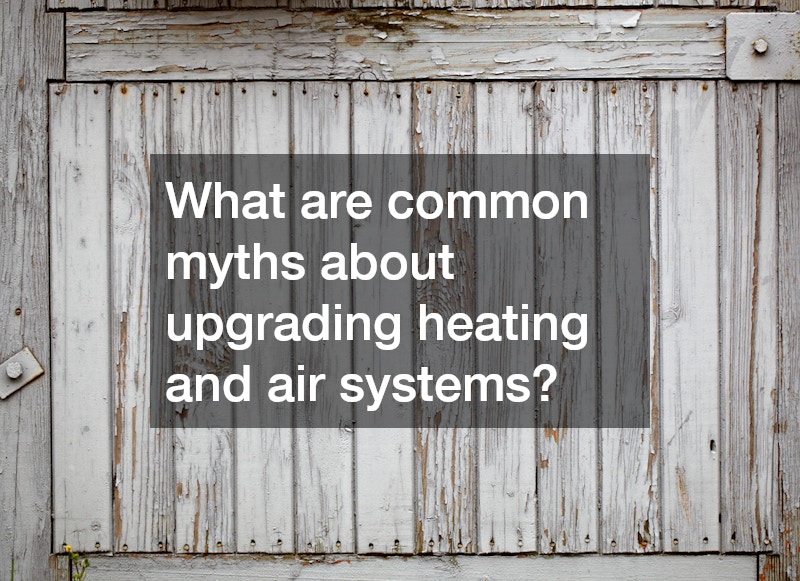
Myth: Bigger is Always Better
An oversized system can cause more harm than good. Proper sizing based on expert calculations ensures efficient operation and consistent comfort.
Myth: New Systems Are Always Costly
While the initial cost can be high, long-term savings through lower bills, fewer repairs, and incentive programs often outweigh the upfront expense.
Myth: Maintenance is Unnecessary
Even new systems need regular preventative maintenance. Neglect can shorten lifespan and reduce efficiency, making routine care essential.
Myth: All Systems Are Alike
Different homes require different solutions. Options like heat pump installations or tankless water heater upgrades offer tailored benefits depending on your specific situation.
Myth: Upgrades Don’t Improve Air Quality
Modern HVAC systems often include superior air filtration and humidity control, directly impacting indoor air quality and overall health.
Closing Thoughts
Deciding whether to upgrade your heating and air conditioning system involves evaluating current performance, understanding available technologies, and considering long-term benefits. Whether you’re dealing with an aging water heater, considering a tankless water heater installation, or exploring full HVAC upgrades, working with experienced HVAC companies and plumbers ensures you make the best investment for your home. With improved energy efficiency, better air quality, and the comfort of modern features, an upgrade is often more than worth it.